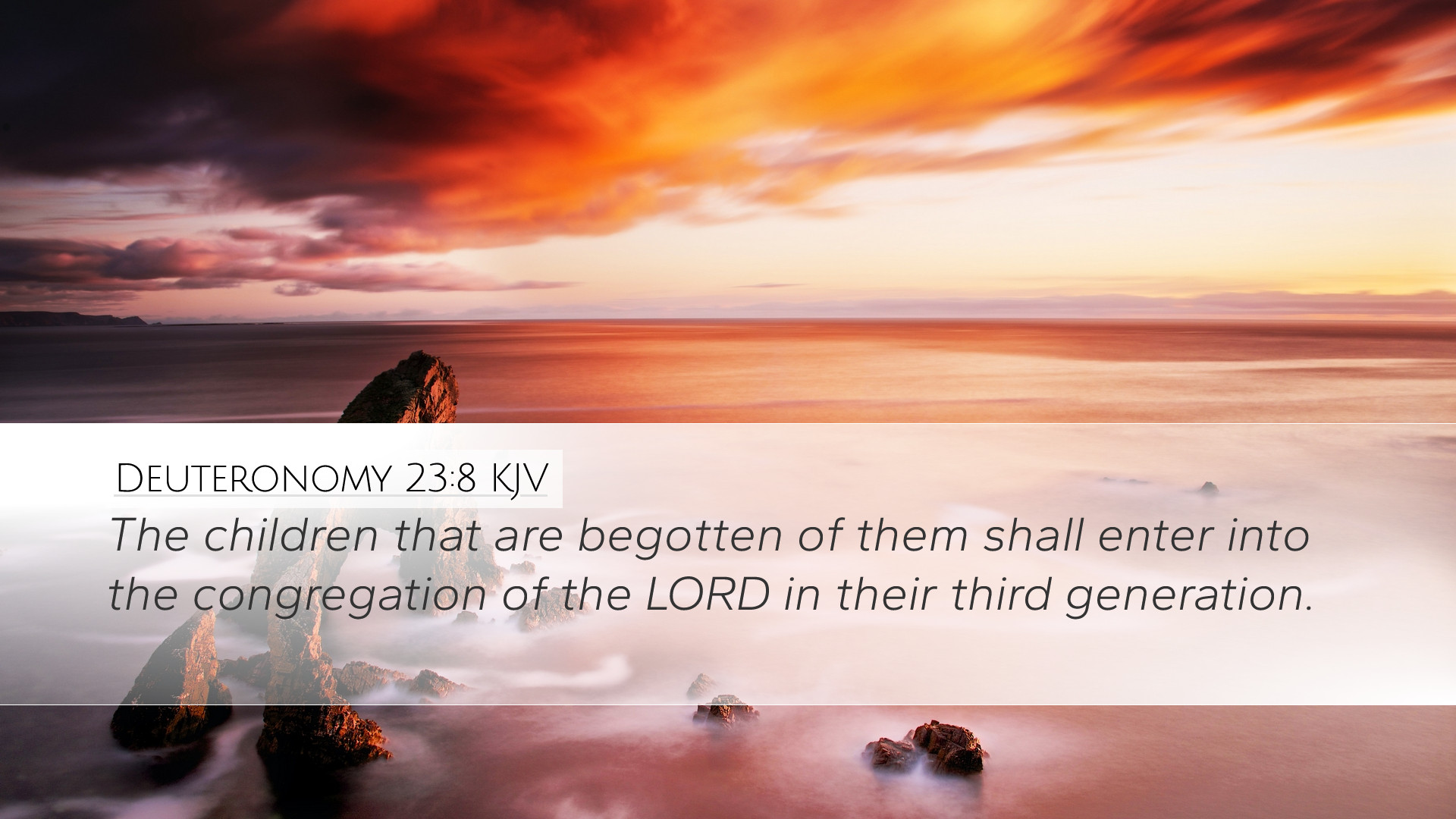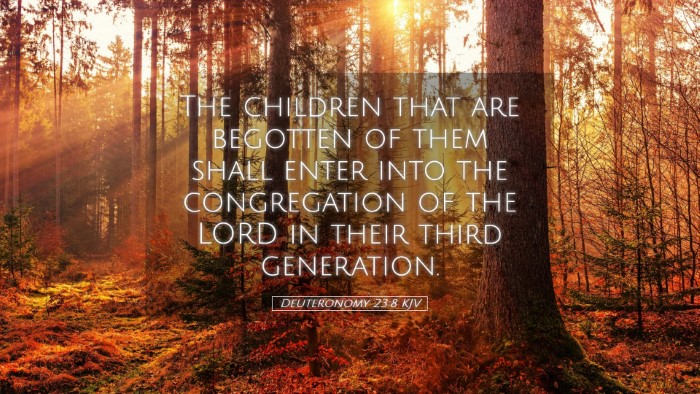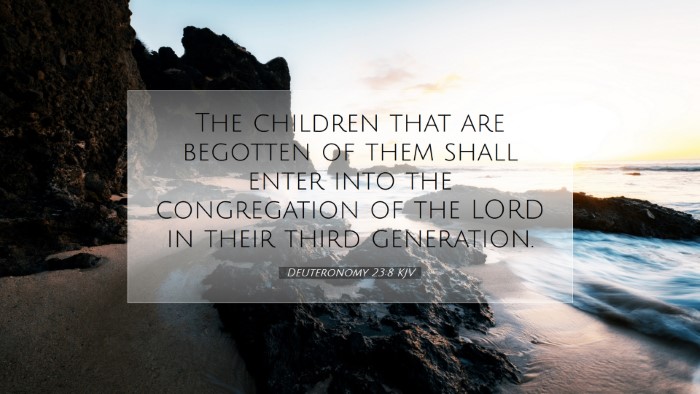Commentary on Deuteronomy 23:8
Verse Context: Deuteronomy 23:8 states, "The children that are begotten of them shall enter into the congregation of the LORD in their third generation." This verse relates to the laws concerning the congregation of Israel, particularly who may enter into its assembly.
Overview of Public Domain Commentaries
This commentary synthesizes insights from esteemed theological scholars such as Matthew Henry, Albert Barnes, and Adam Clarke, addressing the implications of this verse for understanding God's covenant community.
Matthew Henry's Insight
Matthew Henry emphasizes the overarching principle of God's holiness and the preservation of purity within His people. He points out that this verse reflects an acknowledgment of certain historical and social realities regarding those who were not part of Israelite lineage, particularly Edomites and Egyptians:
- Inclusivity After Generations: The term "third generation" signifies that while initial foreign ancestry may disqualify individuals from immediate participation in worship, inclusion is feasible over generations, reflecting both God's mercy and the importance of lineage in ancient Israel.
- Commentary on Exceptions: Henry notes that this verse illustrates a balanced perspective in the law, allowing for the potential integration of non-Israelites provided they align with the faith of Israel, thus illustrating God’s intention for inclusivity within spiritual boundaries.
Albert Barnes' Perspective
Albert Barnes contends that this regulation helps to delineate the assembly of believers while also addressing the complexities of human relationships:
- Edomites and Egyptians: Barnes clearly outlines that Edomites and Egyptians could enter the congregation after three generations, which indicates a slow process of integration. This suggests a gradual acceptance which is vital for maintaining the purity of worship.
- Social Implications: Barnes argues that this law serves to promote unity among God’s people, encouraging future generations to embrace the faith while weeding out idolatrous practices from the past. This illustrates a dynamic balance between inclusivity and preservation of covenant fidelity.
Adam Clarke's Analysis
Adam Clarke adds depth to the discussion by interpreting the language and historical context of the verse:
- Generational Influence: Clarke emphasizes the significance of three generations as a standard for acceptance, noting that it symbolizes a complete cycle where the original foreign identity becomes diluted with genuine kinship with Israel.
- Spiritual Correlation: He asserts that this regulation mirrors God's desire for a holy people. The broader theological implication is that God's community must reflect His character, and the integrity of worship must be preserved from external influences that could lead the community astray.
Theological Implications
Drawing from these insights, several theological implications arise from Deuteronomy 23:8:
- Understanding of Holiness: This passage communicates God's concern for holiness among His people, indicating that worship requires purity and alignment with His commands.
- Expansion of God’s Covenant: God's willingness to allow later generations of Edomites and Egyptians to join the worshipping community portrays a theological narrative of salvation history, demonstrating God's redemptive purposes extending beyond Israel.
- Covenantal Identity: The process outlined in the verse highlights the importance of one’s identity within the covenant community, emphasizing that acceptance hinges on faith and allegiance rather than mere ancestry.
Practical Applications for Modern Believers
The implications of Deuteronomy 23:8 extend beyond historical context into practical applications for contemporary faith communities:
- Embracing Diversity: Churches today are called to embrace and integrate new believers from various backgrounds while maintaining a commitment to holiness and the teachings of Scripture.
- Generational Discipleship: This passage encourages a focus on longer-term discipleship that brings new generations into the faith, stressing the importance of teaching and mentoring in the community.
- Protecting the Worship Environment: There is a call to be vigilant about influences that could dilute the purity of worship and teaching within the community, ensuring faithfulness to God’s commands.
Conclusion
Deuteronomy 23:8 serves as a profound reminder for believers about both God's standards for holiness within His community and His kindness toward those seeking Him from outside that community. It challenges modern readers to reflect on the nature of inclusion in the faith, the enduring power of God’s covenant, and the call for vigilance in maintaining the integrity of worship.


